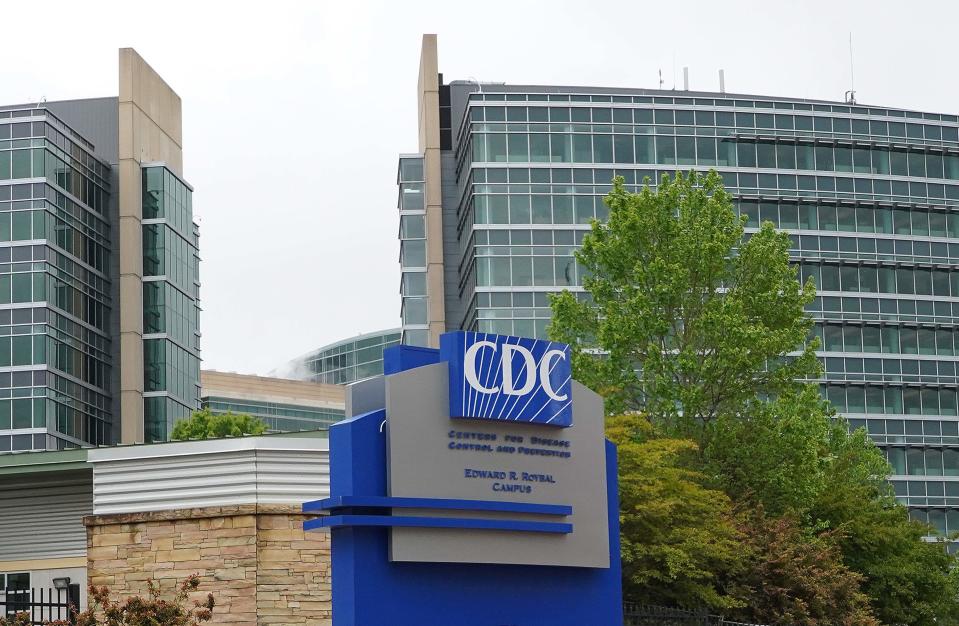Who gets the COVID-19 vaccine first? CDC committee meets to start the discussion
The last committee that will sign off on who first gets COVID-19 vaccine met virtually Friday, not to make any decisions but to discuss what it will do when the time comes.
The CDC’s Advisory Committee on Immunization Practices sets guidelines for who should get vaccines once they’re authorized by the Food and Drug Administration. It held one of its three-times-a-year open meetings this week, ending with a full-day discussion of COVID-19 vaccines on Friday.
The committee, called ACIP, will make the crucial decision on who should be first in line to get COVID-19 vaccines when they become available.
No final determinations will be made until the Food and Drug Administration approves a specific COVID-19 vaccine as different vaccines work better or worse in different age groups or in people with different underlying medical conditions.
However, the outlines are becoming clearer. In line with other government groups which has previously made recommendations to CDC, the first four groups look to be these:
Healthcare personnel
Vaccinating this group preserves healthcare capacity essential to the nation’s COVID-19 response. People who work in this field are at higher risk for getting COVID-19 because they’re exposed at work, and generally they can’t work from home. They also belong disproportionally to racial and ethnic minority groups.
The group contains an estimated 21 million people, said Dr. Mary Chamberland, who presented to the committee on the ethics of vaccine allocation.
Essential workers
Their work is crucial to the overall functioning of society and their ability to stay healthy helps to minimize disruption to society and the economy, Chamberland said. They are at higher risk because they are often unable to work from home. They include approximately 87 million people.
Adults with high-risk medical conditions
This includes people with medical conditions that put them at higher risk of severe illness and death from COVID-19. The list, which changes as more becomes known about the virus, includes cancer, chronic kidney disease, COPD, heart conditions, obesity, sickle cell disease, smoking and diabetes. It includes about 100 million people.
People 65 and over
Vaccinating this group would reduce sickness and death from COVID-19 as they are at higher risk for severe illness and death. They make up about 53 million people.
Altogether these four groups equal approximately 261 million out of a U.S. population of 328 million.
While much is still unknown, other questions about vaccines are beginning to be answered.
Women who are breastfeeding can definitely get vaccinated, at least with one of the front-runner vaccines. Later vaccines may be based on live SARS-CoV-2 virus, which causes COVID-19 and then the discussion might be different. None of the first few vaccines expected to become available fall into that category.
Pregnant women can probably get vaccinated but there’s simply not enough information to know for sure because pregnant women aren’t allowed in the vaccine trials, the committee said.
They should be cautious and discuss the matter with their health care provider so they can make an informed decision.
One of the most important take-aways for the public is that whatever it decides may change as more information about the vaccines becomes available.
“What may be acceptable as a short-term recommendation to get things started may change when more is known. The recommendations will be reviewed as new data is available,” said Dr. Kelly Moore, associate director of immunization education at the Immunization Action Coalition, a national vaccine education and advocacy group.
The problem is the unknowns, said Dr. Robert Atmar, a committee member from the Baylor College of Medicine in Houston.
“What we’ve found out about this virus so far is that it’s unlike anything we’ve seen before. So unknown and bad possibilities are always a consideration,” he said.
That ability to acknowledge that they won’t know everything at the beginning is not a failure of the system but a strength, said Moore who sat on the committee from 2015-2019.
“This should increase the public’s trust and confidence. The committee doesn’t make a recommendation and then just walk away. They will continue to meet and work and follow up,” she said.

This article originally appeared on USA TODAY: CDC that decides who's first in line for COVID-19 vaccine meets


